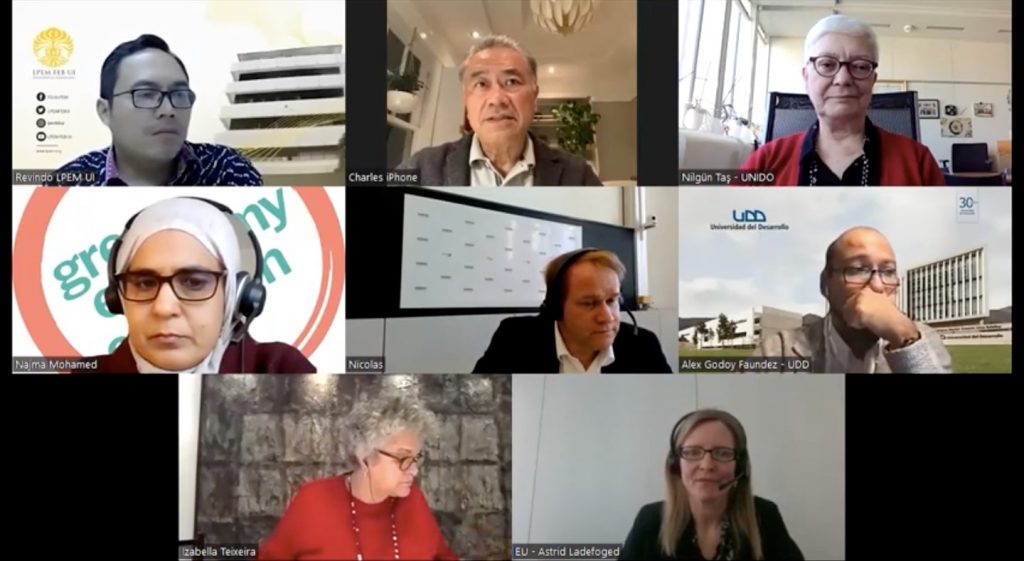The Global Solutions Summit is the world’s premier forum for transforming research-based insights into policy recommendations for the G7/G20.
CTN Chairperson Charles Huang, was invited to attend the “Circular Economy and Global Value Chain” session, which is hosted by the Circular Economy Solutions Dialogues (GIZ). Other panelists include the Deputy Director of the United Nations Industrial Development Organization, co-chair of UNEP International resource panel, the European Commission representative, and many more.
According to GIZ, in the past two decades of globalization, urbanization and infrastructure development, the development of global value and supply chains (GVCs) has created a fine-meshed net of linear interdependencies spanning across the planet. This has become particularly visible in times of crises. The pandemic has disrupted global supply chain flows in all sectors from medical supplies to raw materials, wearable consumer goods to electronical materials, etc. Embedding circularity in value chains yields massive positive effects on low carbon trajectories. On the contrary, mounting risks of trade tensions between manufacturing and consuming nations, producers and brand owners, hinders the development of circular economy when it would be needed the most. Multi-angle solutions are the only way forward.
Crisis is an opportunity in disguise! Charles Huang pointed out that changes in the supply and value chains are the key. The COVID-19 pandemic and other geopolitical disruptions all call for accelerated and collaborative move "from globalized linear supply chains to a regionalized, closed-loop and thus more resilient circular economy value network".
He further elaborated the benefits of applying the circular economy concept to the global value chain and made three suggestions:
- “True cost” must apply to all stakeholders among the global value chain.
- From brands, manufacturers, to raw material suppliers, all must stop “buck-passing” or shifting external costs.
- Public and private financial institutions must align their “financial performance measurements” with the close-loop concept and principles of the Circular Economy.
The critical first step is to initiate global dialogues of “Circular Collaboration for Climate Crisis” (CC4CC), especially between consumption nations and production nations, brand-owners and manufacturers to establish a strong “CIRCULAR VALUE NETWORK”.
Press release:
- Global Solutions Summit 2022: Accelerating the Circular Economy transition
- Forum,Global Solutions Summit 2022
Session video:
